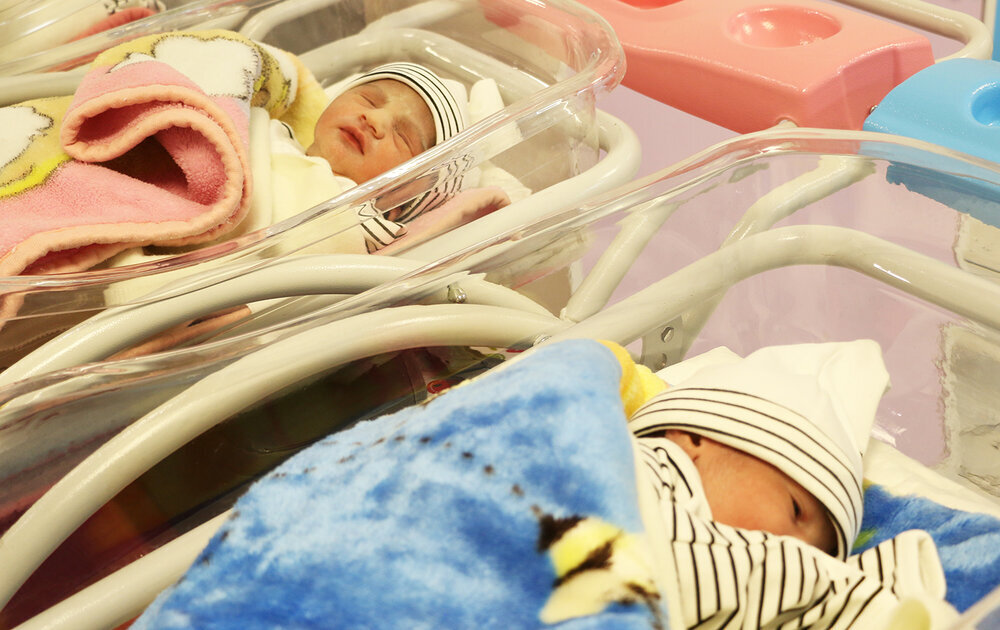Births 2.5 times of deaths in 4 months

TEHRAN - Within the first four months of the current Iranian calendar year that started March 21, a total of 338,601 births were registered in the country, compared with 139,467 deaths.
During the period, 175,694 boys and 162,907 girls were born across the country, according to the Civil Registration Organization.
Tehran province with 42,417 newborns, Khorasan Razavi province with 33,302 newborns, and Sistan-Baluchestan province with 28,905 newborns had the highest number of births in the first four months of the year.
Meanwhile, the provinces of Semnan, Ilam, and Kohgiluyeh-Boyerahmad, respectively had the lowest number of births in the country.
Also, over the aforementioned period, 139,467 deaths were registered across the country. Tehran, Khorasan Razavi, and Isfahan provinces recorded the highest death rates.
However, the three provinces of Ilam, Kohgiluyeh-Boyerahmad, and Semnan recorded the lowest number of deaths.
Population growth policies
Paying attention to the law on supporting families and the youth will pave the way for the development of the country and will also reduce the population crises, but the accurate and timely implementation of the law requires willpower both from people and officials.
According to the national center for monitoring population policies, from 2001 to 2015, the number of births has been increasing in the country, but after 2015, the number of births started to decrease with an almost steep slope.
In 2020, the number of births in the country (1,114,000) decreased by more than 29 percent compared to 2015 (1,570,000), a decrease of more than 450,000 births, which was unprecedented in the last few decades.
The number of births in the year 2021 (1,116,000) also shows an increase of about 2,000 compared to the year 2020.
Also, the rate of births from about 20 per thousand population in 2015 has reached its lowest level in the last 50 years with a significant decrease to 13.24 per thousand population in 2021.
The population growth rate reached 0.73 percent in 2020 and 0.68 percent in 2021 despite an increase of 2,000 births compared to 2020.
Estimates show that due to the slight increase in births last year compared to 2020, the population growth rate this year will also decrease.
Also, as long as the fertility rate is below the replacement level, it is expected that the country will face a further decrease in the population growth rate in the coming years.
In Iran, about 10.5 percent of the population was over 60 years old in 2020. In 2050, the population over 60 years is forecast to increase to 33 percent.
Also, about 7 percent of the population was over 65 years old in 2020. In 2030, the population over 65 years is forecast to increase to about 10 percent.
MT/MG
Leave a Comment